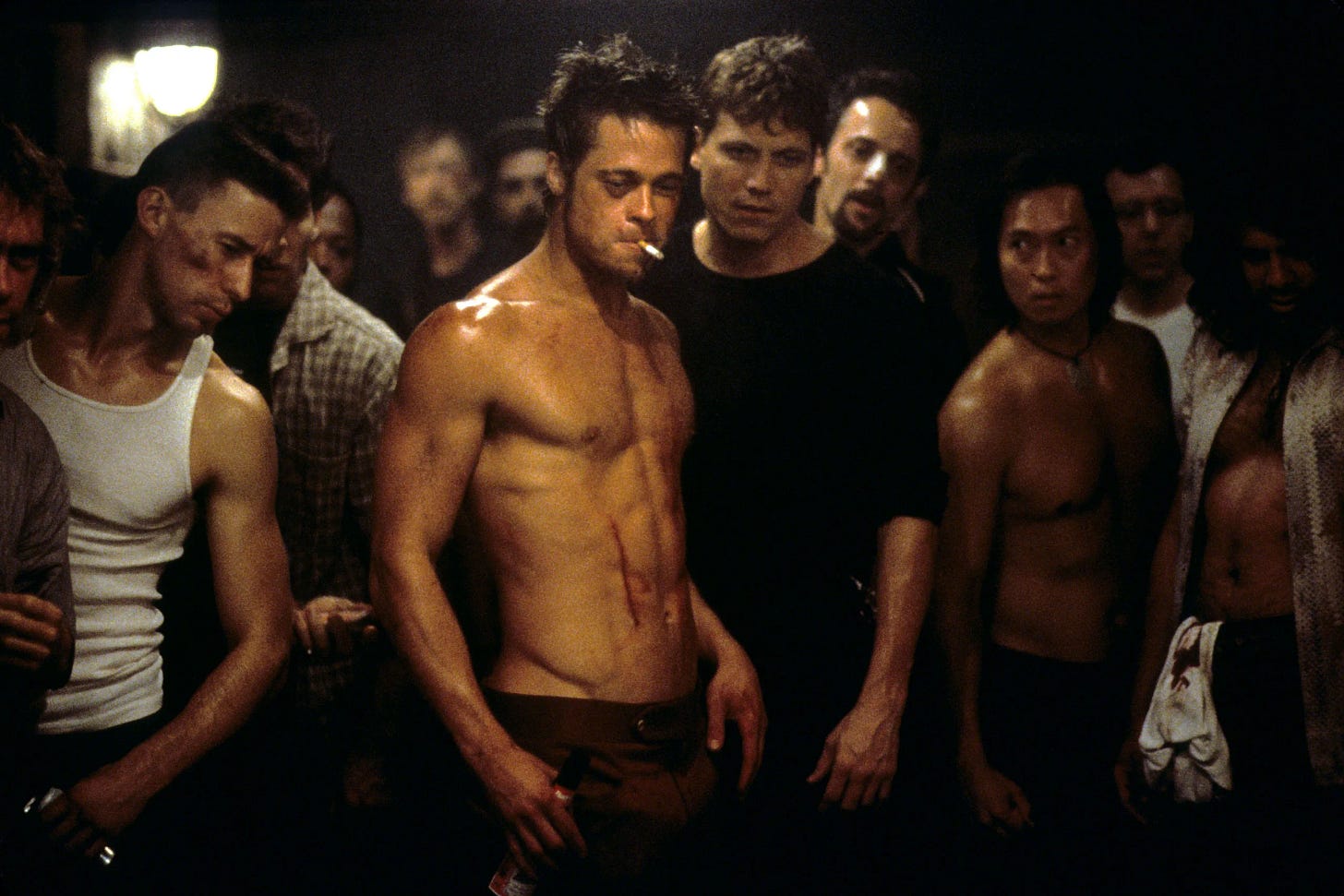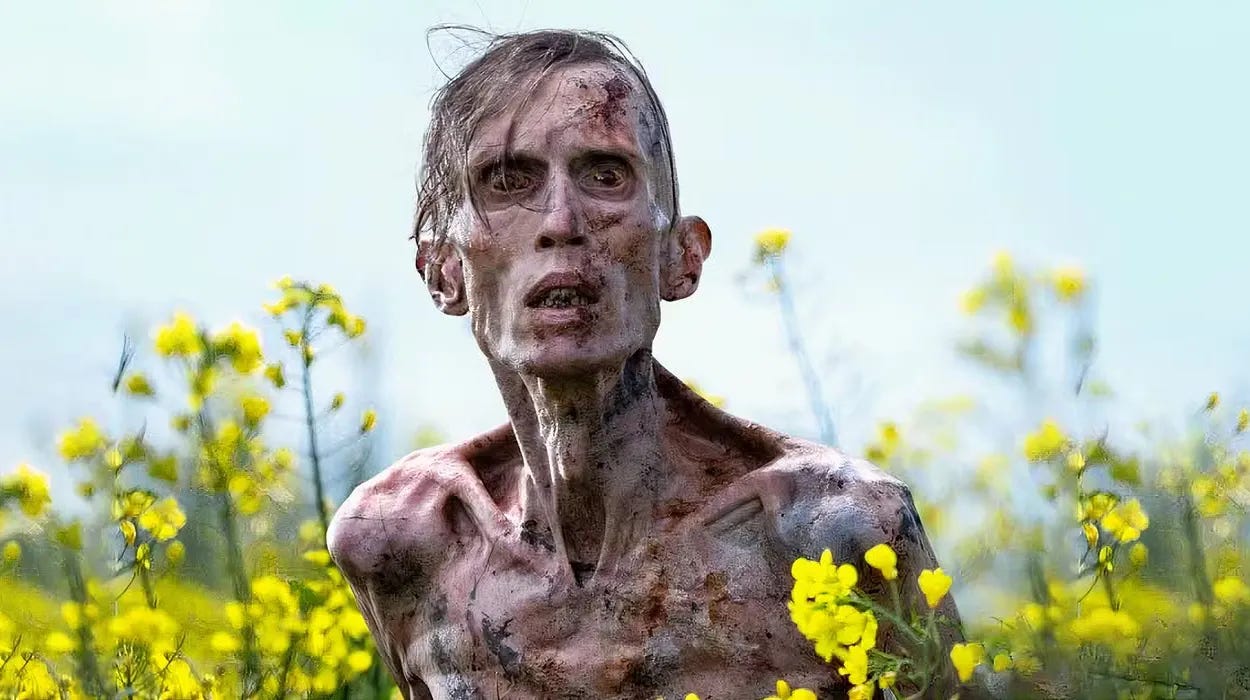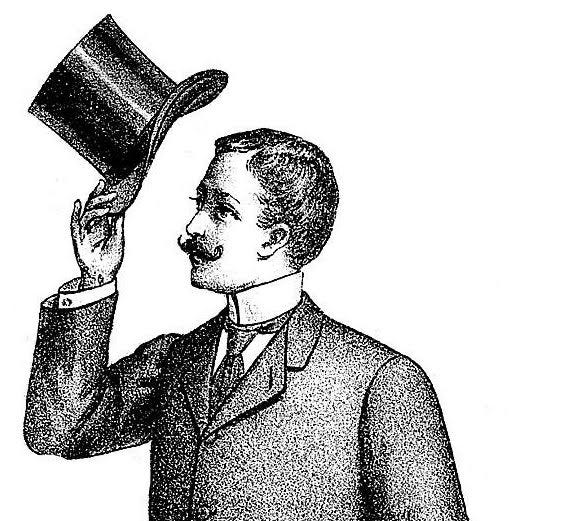Essay: I am Jack's midlife crisis
Twenty-five years later, 'Fight Club's punches don't land the same.
I want to keep my short reviews and essays free—like the hot dog chili at 711—but I need your support to continue doing so. $5/$50/$75. Help keep me off the streets and hunched over a computer, writing reviews of sexy Nicole Kidman movies.
I am Jack's SSRI.
I am Jack's diner order
I am Jack's midlife crisis.
It is 2025. Fight Club came out 25 years ago. I was 25 when I first saw David Fincher’s slick adaptation of Chuck Palahniuk’s darkly comedic novel about a nobody and his mental breakdown.
I was young then. I am old now, and getting older.
Another difference between yesterday and today: I’m not as pissed-off. My anger is a blue flame clinging to a blackened matchstick. The young rage at the unfairness of it all. But the old quietly wonder: “How did we let this happen?”
Fight Club stars Edward Norton as a nameless corporate drone whose identity is defined by whatever he last bought at IKEA. He yearns for a purpose, which is the default setting of every modern American. We yearn, we hunger, we want. We pursue happiness, as if happiness were a thing with hooves to hunt and roast.
Norton is a powerful screen presence for someone so lithe and chinless. He's a scarecrow with a tyrant's glare. His character is angry. He's angry at… everything. He's angry at Starbucks. He's angry at his boss and himself and his boring little life, filled with boring little pleasures. One night, while leafing through a magazine, the Narrator reads a health article written from the perspectives of various body organs: I am Jack's colon. I am Jack's medulla oblongata. Jack is a choir of internal voices.
He adopts the phrase as a mantra, a way to cope with his unraveling mind. His fears and insecurities become characters unto themselves, each capable of introducing itself from within. Jack is a collection of meat scraps and neuroses, a grab bag of damage and dread.
He is falling apart, like a leper losing an ear or a finger. And one of those pieces comes to life, like a Pinocchio from hell. It starts shouting. This thing has a name: Tyler Durden. And a plan. Together, they form a secret group for men. The meetings take place in basements, where they proceed to beat the shit out of each other.
Brad Pitt’s Tyler Durden is a rock star and a prankster, the kind of white straight man that white straight men want to be: confident, formidable, fearless. He has principles. He knows how to do things, such as making soap and bombs. Pitt's most unique talent as an actor is his self-awareness. He knows he's beautiful. That people are naturally drawn to him. His Tyler Durden is like a sexy bug zapper, attracting beta males to his deadly electric heart.
Durden acts like a man. He fucks and fights and laughs at pain. Durden’s got balls like the booby-trapped boulder that barrels toward Indiana Jones. He is everything Norton's sadsack wants to be, and the movie's famous plot twist is that he is Tyler Durden. They are the same. Durden is Jack’s avatar, a photoshopped profile pic, a mask.
The movie wasn’t the blockbuster the studio wanted, but it was popular with tattooed mutants and unhappy greaseballs when it first hit the multiplexes. The critics were mixed, with most of them mentioning Fincher’s flair but bemoaning the grime.
I saw it with a friend on opening weekend. We were drunk on intensely sweet screw-top bodega wine, we snuck into the theater. One bottle each, I think mine was blue raspberry flavor. He passed out halfway through and snored during the scene where Durden goes limp and lets a local mob boss beat his face into hamburger meat.
After the movie, I had to explain the twist ending. He didn’t get it. “Ed Norton’s character and Tyler Durden are the same person.” “What?” “Like a split personality.” “I don’t get it.” Later, stumbling home, we played an old-fashioned game of Two for Flinching. I flinched—I always flinch—and wore an eggplant-colored bruise on my arm for a week or so. I rubbed the contusion through my shirt at work and plotted my revenge.
If you’re not familiar with Two for Flinching, then you probably weren’t raised a boy in the public school system. The rules were simple: “two for flinching.” It was like junior Fight Club. I lived in fear of getting punched in the arm twice because I was cursed with the startle response of a woodland creature.
The following week, I went to see Fight Club again. Alone. Drunk. I was soft then, like a slice of Boston cream pie. That hasn’t changed about me.
Fight Club looks as damp and fresh as it did when it first came out. Fresh like a rash. It is still militantly impolite. Crude. Homophobic and homoerotic, at the same time. Fists obliterate beautiful male faces. I howled at every sick joke carefully calculated to shock. There are cancer gags and pedophilia one-liners.
I thought about the movie at my temp job. I wanted the courage to quit and retreat from society. I wanted to blow up the world, too. I wanted a girlfriend like Marla. Someone fucked-up. Complicated. I thought I was both, but I was just an alcoholic.
Helena Bonham Carter is gorgeous as Marla, the Ghost of Gen X Apathy Past. Her character is a teen boy fantasy: a slutty, eye-rolling goth. She elevates Fight Club. She can’t help but add a layer of complexity and vulnerability to a movie that isn’t interested in either, not really.
This is a movie about chaos for confused people, made by control freaks. It’s occasionally clever, certainly anarchic, but far too stylish for its own good.
I became mildly obsessed with Fight Club. I bought multiple pairs of red-lens sunglasses, the kind Tyler Durden prefers. I listened to the movie's final track, “Where Is My Mind” by The Pixies, from their album Surfer Rosa, repeatedly on my portable CD player. I'd make a big deal about the evils of consumerism but I found it hard to resist the affordable dork fashions at The Gap.
The line “The first rule of Fight Club is you don’t talk about Fight Club” became part of the vernacular. I’d quote it randomly with my drinking buddies.
Eventually, I internalized it. Only I’d replace Fight Club with my emotions. It became a philosophy of sorts:
The first rule of John’s heart is you don’t talk about John’s heart.
***
To watch Fight Club 25 years later, for the first time or for the tenth time, is to be forced to accept the following unfortunate truths: very little has changed for men. Fight Club is old enough to scroll through social media, to swipe on dating apps, to stare at shirtless social media influencers validating fears that the world is against men. The women are ruined. The gays are in charge. That’s the bedtime story men tell each other now. Poor us. We have to compete.
I am Jack’s fear of change.
I am Jack’s YouTube algorithm.
I am Jack’s loneliness.
Men, the dominant social blob. Men, the heirs to all the thrones. Men, sad and angry and purposeless. Right now, there’s a 25-year-old watching Fight Club and grinning. The movie is the movie. There is no subtext. No lecture. Fuck the system. That’s it. The title club is a fraternity of losers who beat each other to a pulp nightly, and then hug it out. They are a brotherhood.
There is one thing the last century and this current one have in common: men want to belong. We yearn for it. Men are vulnerable to friendly invitations and sympathetic ears. We're raised to pretend we don't long for the company of other men, but we do. Durden exploits this in Fight Club. His boys are lost, and he gives them a home that accepts and inspires them. If Durden weren’t a fictional hallucination inside the head of Ed Norton’s scrawny NPC, he’d be a podcast host, commanding random men to subscribe and listen to his advice on how to get strong, rich, and laid, in between ads for various performance-enhancing supplements.
The American project has always struggled to give purpose to its men. Usually, save for a few aristocrats, men are supposed to die in wars, foreign or domestic. We are born to be shot or thrown through a windshield, or zapped by a heart attack.
When we're not facing our demise, we're commanded to act like men. How does a man act? A real man. Thankfully, it's a very simple character. He's strong and ambitious and horny. He's happy to provide. To do his taxes and mow the lawn. A real man sits by himself in the garage, pounding beers, staring off into the distance, waiting to die. He is scared and disappointed and numb. A real man can fit his fist in his mouth like an apple and scream.
Fight Club says, "Here’s your purpose.”
It’s not raising a family, or caring for a community, or making something with your hands that outlives you, a gazebo or a novel. Something. Anything. No. The message of Fight Club is that men should be untamable. Scare yourself. Destruction is creativity. Run in a pack. Men are animals and it’s okay to piss in the street.
The underground hand-to-hand free-for-alls of Fight Club mutate over time, from an unruly mob of awkward underachievers into a disciplined terrorist cell of angry men on a mission to change the world through violence. The terrorist has no tomorrow or yesterday. He is usually a young man whose isolation is interrupted by another man. Older. A sympathetic mentor. “It’s not you, it’s them.” Society. Parents. Ex-girlfriends.
Fight Club is a prescient fable about terrorism, but that might be accidental. That is not the movie’s only raison d'être. No, mes chéris. Fight Club is many things, in retrospect, a far more complex collection of themes and attitudes that reflect the trendy mass ennui and imperial lethargy of the late 1990s.
The movie is, for instance, a superficial faux-punk investigation of masculinity through a pop nihilist lens smeared with Vaseline. Fincher isn't interested in social commentary, he’s oh-so above it, but like Palahniuk, he saw mocking the rising popularity of “political correctness”—the mlitant politeness movement that would later morph into ‘wokeness’—as an opportunity to entertain and suck up to young men alienated by a generation of women raised to speak up for themselves. Fight Club is an exercise in the aesthetics of testosterone, and the movie smells like gym towels and Gouda.
It’s also a big-budget excuse to celebrate masculine bodily fluids and the orgasmic rush of a bar fight. If we’re exploring genre, Fight Club is part psychological thriller, part comedy of bad manners; a cynical Gen X cocktail that survives not because it’s high art, but because it successfully repackages one of Hollywood’s oldest and most bankable products: masculinity.
You can sell anything to a man if you tell him it's for men.
In 1999, there was no such thing as “toxic masculinity.” There were only wusses and real men. And the number of people—including Brad Pitt—who went into styling and creating Tyler Durden, a fictional sexy beast, the hours of training and shooting it took to craft this illusion, to turn Oklahoma-born pretty boy Pitt into immortal anti-hero Tyler Durden, would depress any average mortal schlub who looked up to him, the way a toddler stares lovingly at a mall Santa.
I am Jack’s graying, thinning hair.
I am Jack’s lower back pain.
I am Jack’s erectile dysfunction.
I rewatched Fight Club last night. It’s streaming. I am older. I am not 25. I wish I had abs. I’ve never had abs. I am not the same person I was in my twenties. I don't feel the pressure to act like a man, whatever that means. I can barely keep my shit together these days. I sat through the movie musical The Greatest Showman with my twelve-year-old niece the other day and almost bawled.
The young men in Fight Club seek out pain. They cause it, and endure it. It's how they prove their manliness to each other. Their bloody brawls are displays of strength, ecstatic dances meant to please the gods of war. One of the unwritten rules of Fight Club is: "smile while suffering." Real men don't flinch. They swallow their sadness.
If I could tell my younger self one thing about getting older, it would be this: Pain comes for us all, eventually. Real men breathe. Slowly. Intentionally. They do not fear the quiet and stillness of a painless moment because they know those moments are few.
I’m trying to take better care of myself. I have a Tyler Durden inside me who whispers, "go to the gym." I have friends that I love. I am grateful for them. I go to AA meetings, which often take place in basements. I have a purpose: to live as long as possible and to be there for the people I care about, including my wife, nieces, and brother. For my dudes. I have my own fight club.
It's called the diner.
I meet old friends there. We slide into leather booths and study the oversized, laminated menus, which we have already memorized. Mozzarella sticks are ordered for the table. I get a BLT with a side of pickles. Sometimes a Western omelet. A joke is made. Politics is briefly brought up. Shrugs. “What are you streaming?” “Did you see the new Marvel movie?” Sports get a shoutout, but not by me. I hope your team wins, though. After a cup of black coffee or two, we open up about children, jobs, and the future. Feelings. Responsibilities. Happinesses and regrets. Therapy is mentioned. Another joke is cracked. It’s a good time.
The first rule of diner club is tell everyone to meet me there at noon.
New 150 Word Review: ‘28 Years Later’ (2025)
Coming Soon: A Newsletter About Masculinity. Subscribe Now!
Hello, beloved subscribers and followers. I am launching a new newsletter in a few weeks. It will be called Advice For Men. There will be advice and essays about therapy and anxiety and loneliness. The newsletter will be for men. What is a man? Great question. Here’s the link to the About Page where you can sign-up!









This is terrific work.
I liked Fight Club at the time. I was young, too. I was 18. But there was something about it that never sat right with me, and not just the toxic masculinity part. Older me understands that if you make a fable about terrorism as you so aptly put it, there should be some kind of moral lesson, or at least it should operate as a cautionary tale. I think it was prophetic in predicting the "male loneliness" epidemic, and the rising misogyny in the culture, but doesn't really give any ideas on how to change it.
The film ends with what looks like a rejection of Tyler Durden, but what really happens is that Norton's character embraces Durden so hard that they integrate. The former two selves (metaphorically, of course, I understand they were the same person!) are now one, psychologically. He didn't kill him. He folded him in so deeply that he'll never be able to get him out.
“Pitt's most unique talent as an actor is his self-awareness. He knows he's beautiful. That people are naturally drawn to him.” *edit: Such an insightful read on him in ways I haven’t quite heard so sharply articulated. TY!